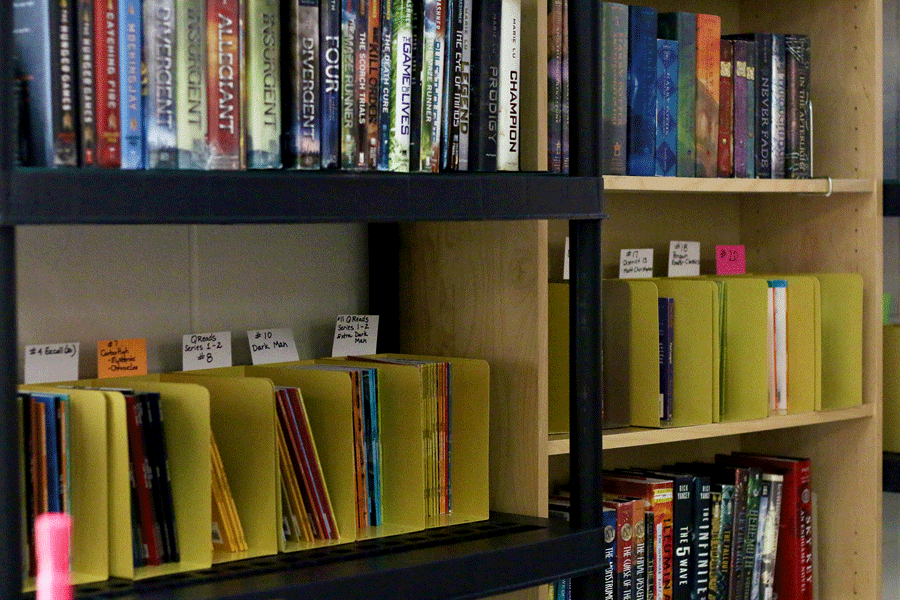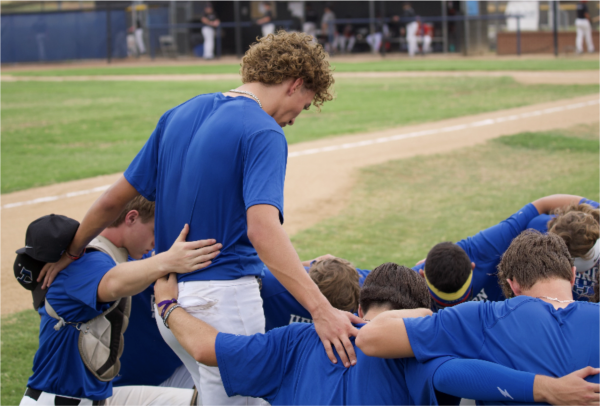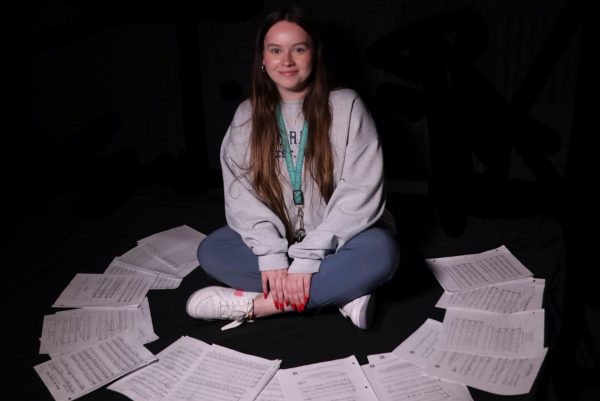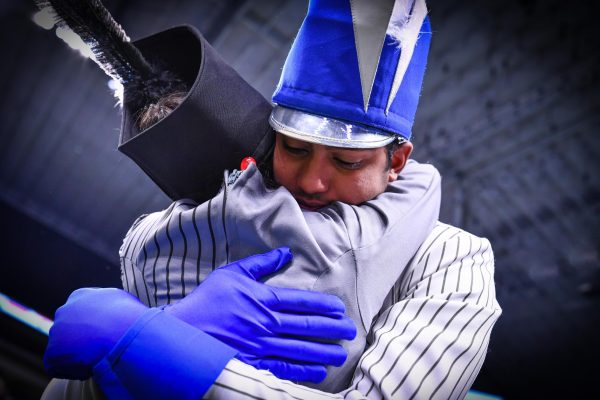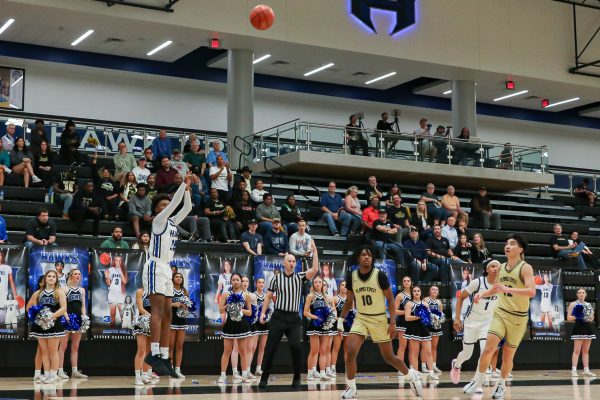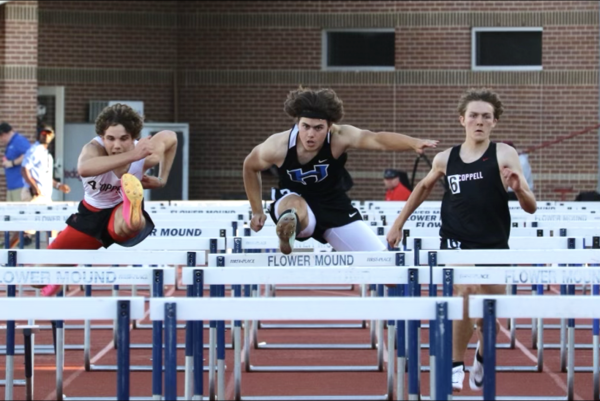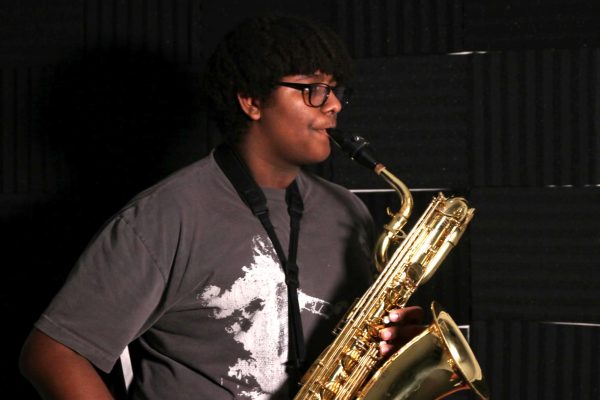LEF grants awarded to three English teachers at Hebron
English teachers Jeanette Rooks, Kim Nickerson and Kathleen Linch were all awarded a grant from The Lewisville Education Foundation (LEF) at the beginning of the school year.
All three teachers were awarded money based on how their applications aligned with what LEF stood for.
“This is a follow-up grant to a grant I got last year,” Rooks said. “What we were trying to do last year was to encourage people to read nonfiction.”
Rooks not only wants her students to become more interested in nonfiction books but also to become better problem solvers. Rooks plans on putting her grant towards buying books for her class.
“We wanted to do more than just provide books and have kids read them,” Rooks said. “For example, The Girl’s Guide to Homelessness started the kids talking about the issue of homelessness and how it can happen to people who are working hard, not just people who are lazy. So this year, we want the kids to do is to not just read the book, but research the issue they find and then to share that information.”
Rooks focused her grant on prompting her students to look beyond standardized tests and school for applications where English can apply.
“I’m hoping to show them there’s a world outside of them,” Rooks said. “It’s really easy and understandable that juniors are worried about college, test scores, and their GPA. But there’s a world beyond us where there’re so many issues to address. If we say an issue is too hard to solve, or an issue is too controversial, then we’re just accepting it and moving on with our lives. I want our kids to think beyond their little circle of comfort.”
Similar to Rooks, Nickerson along with two other English teachers, Becky Bertrand and Kate Mayo have a similar strategy.
“We wrote [the grant] to buy books to use in our Pre-AP English II classes to do literature circles,” Nickerson said. “We are going to order books that are on the same subject, but they’re all from different perspectives. So we are hoping that will lead to more discussion, more debate which will then led to stronger, richer writing.”
Nickerson plans on specifically buying books based on World War II. She believes that students can acquire life goals that would benefit the students and portray moral values.
“I think the big thing that we really talked about with this grant is that we want our students to think for themselves,” Nickerson said. “We want them to have open minds about all kinds of different things that are happening,not just what is in their own experience, or in their own book. So if we can and learn to stand in somebody else’s shoes and see things from different perspectives, that could maybe lead to more tolerance.”
Linch, who teaches English as a Second Language (ESL) at the Ninth Grade Campus, saw frustration in her students when they weren’t able to read books that interested them. With the grant she was rewarded, she plans on creating a library in her classroom so her students have a greater variety of books to choose from.
“Instead of making better readers, we were making readers who were more likely to fail,” Linch said. “We started thinking about how we could support them and get them books that had teenagers on the front cover instead of Daffy Duck or a Looney Tunes character. [The new books] are stories appropriate for teenagers, but they’re written at a level that makes the story accessible to them.
Linch has started building a library in her classroom for her students. The books are calibrated to a precise reading level.
“By having this grant, we’re hoping they’re able to eventually read the books they really want to read and go to college and become strong readers who can raise more strong readers,” Linch said. “Generations to come are coming all the way back to this one cause great, great grandma had an opportunity to become a better reader.”
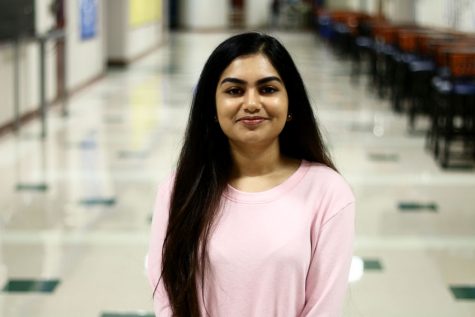
Senior Shreya Rao is the managing editor and this is her third year on the staff. She finds confidence in her eyebrows and she also has an interest for...



